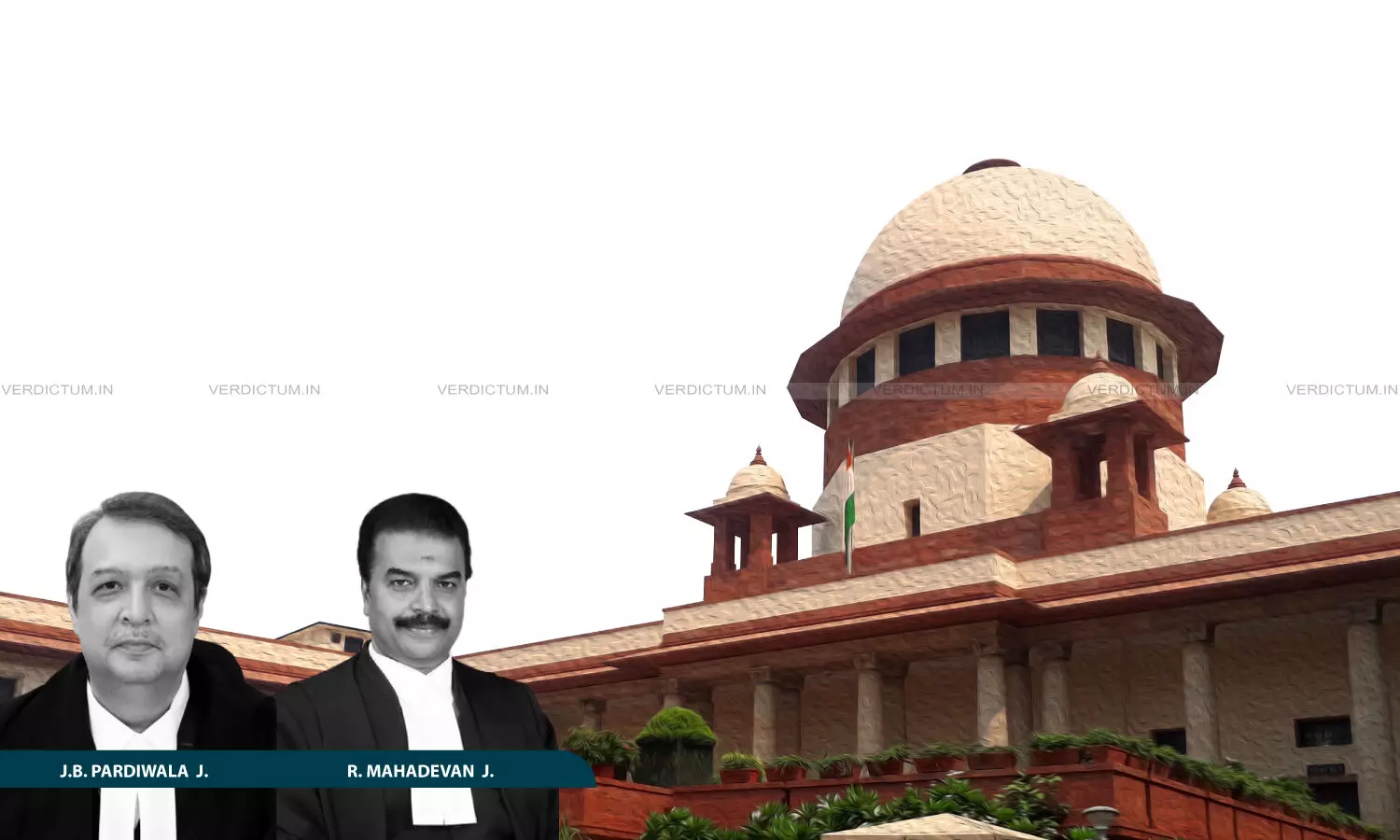
Justice J.B. Pardiwala, Justice R. Mahadevan, Supreme Court
Supreme Court: Causing Impediment By Unlawfully Preventing Public Servant In Discharge Of Functions Is Enough To Attract S. 186 IPC
 |
|The Supreme Court held that the expression ‘obstruction’ used in Section 186 of the Indian Penal Code, 1860 is not confined to physical obstruction.
The Supreme Court held that any act of causing impediment by unlawfully preventing public servant in discharge of his functions would be enough to attract Section 186 of the Indian Penal Code, 1860 (IPC).
The Court was deciding a Special Leave Petition (SLP) preferred against the Judgment of the Delhi High Court, by which the Order of the Chief Metropolitan Magistrate (CMM) was affirmed.
The two-Judge Bench comprising Justice J.B. Pardiwala and Justice R. Mahadevan observed, “… we hold that the expression ‘obstruction’ used in Section 186 of the I.P.C. is not confined to physical obstruction. It need not necessarily be an act of use of criminal force. The act need not be a violent one. It is enough if the act complained of results in preventing a public servant in discharge of his lawful duties. Any act of causing impediment by unlawfully preventing public servant in discharge of his functions would be enough to attract Section 186 of the I.P.C. Any other interpretation would be to encourage people to take the law into their hands, frustrate the investigation of the crimes and thwart public justice. Such an interpretation cannot be commended by the Courts.”
The Bench noted that under Section 186 IPC, the expression “whoever voluntarily obstructs any public servant in the discharge of his public functions” is used and whereas in Section 133 of the Customs Act, 1962 the expression “if any person intentionally obstructs any officer of customs” is used.
“In our considered opinion, the expression ‘intentionally’ used in Section 133 of the Customs Act and the expression ‘voluntarily’ used in Section 186 of I.P.C. connote the same meaning”, it added.
AOR Nikilesh Ramachandran appeared on behalf of the Petitioner.
Court’s Observations
The Supreme Court in view of the facts and circumstances of the case, said, “The word ‘obstruction’ in Section 186 of the I.P.C is not confined to physical obstruction only. Threats of violence made in such a way as to prevent the public servant from carrying out his duty might easily amount to an obstruction of the public servant.”
The Court was of the view that the Complaint itself in this case does not suffer from any legal infirmity.
“It is entirely a different matter altogether that the allegations levelled against the petitioner may be true or not. The same has to be enquired into by the trial court, in accordance with law, uninfluenced by the observations relating to the acts themselves, as this Court has not expressed any opinion whatsoever on the merits of the case. But if the allegations are true and established as is required in law, they would certainly constitute an offence punishable under Section 186 of the I.P.C.”, it noted.
Accordingly, the Apex Court disposed of the SLP.
Cause Title- Devendra Kumar v. The State (NCT of Delhi) & Anr. (Neutral Citation: 2025 INSC 1009)
Appearance:
AOR Nikilesh Ramachandran, Advocates SC Sagar, Shubham Seth, Ananya V Mehra, and Soumya Saisa Das.